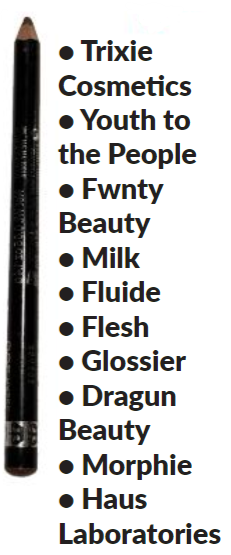Cosmetic expression: both genderless and genderful
November 4, 2021

The concept of beauty is always in flux. It’s always being redefined and societal perceptions of beauty are always changing. There’s nothing about beauty that’s static- when one thinks they’ve grasped what it is, it always manages to race off like a roadrunner. The relationship between makeup and beauty is no exception- it’s ever evolving within the framework of standards and social rights movements.
“Obviously, anyone can wear makeup regardless of gender or sexuality, but I think makeup can also be a really wonderful tool to both express my gender and also liberate me from gender and the expectations it entails.” junior Quenby Wilson said.
Makeup has had a strange history with social justice. It’s long been seen as a necessity for women and an abomination for men. As a reaction to this, some branches of feminism view makeup as oppressive and a hindrance to women’s rights.
“There is still very much an idea that makeup is for ‘feminine’ people which isn’t true. Makeup is paint- it’s for anyone who it makes feel better,” Wilson said.
However, this has changed in the fourth and fifth waves of feminism, especially in relation to the sex-positive and body-positive movements. The new dogma goes that it is a woman’s choice to wear what she wants, including makeup, and present herself however she wants. Makeup does not have to be an instrument of the patriarchy, but instead a tool of empowerment.
Women are not the only ones wearing makeup, though. Makeup is inextricably linked to queerness and gender nonconformity, and has been for a long time. It would be remiss to say that non-women have only started wearing makeup in recent years, because this is far from new. LGBTQ people of all genders have been wearing makeup in the nooks and crannies of the world for as long as those nooks and crannies have been around. The ballroom culture of the late 1900s, where cross-dressing and gender nonconformity were accepted and even encouraged, fueled this.
“Makeup, especially recently, has been a super valuable tool in gender rights and has been used as an art medium for activism, especially involving trans and queer rights.” Wilson said. “By using makeup to subvert a lot of expectations put on AFAB [assigned female at birth], queer, or feminine people, it takes away that outdated idea that makeup is something created for the ‘male gaze’ and instead turns it into a tool for self expression.”
Even so, the use of makeup by non-women has become far more accepted with advances in LGBTQ rights. Obviously, not everyone is on board with this yet, and it seems that every time a male celebrity wears makeup a litany of mostly conservative podcasters get upset online. But in general, it’s more socially acceptable to wear makeup as a form of gender nonconformity than it has been in the past.